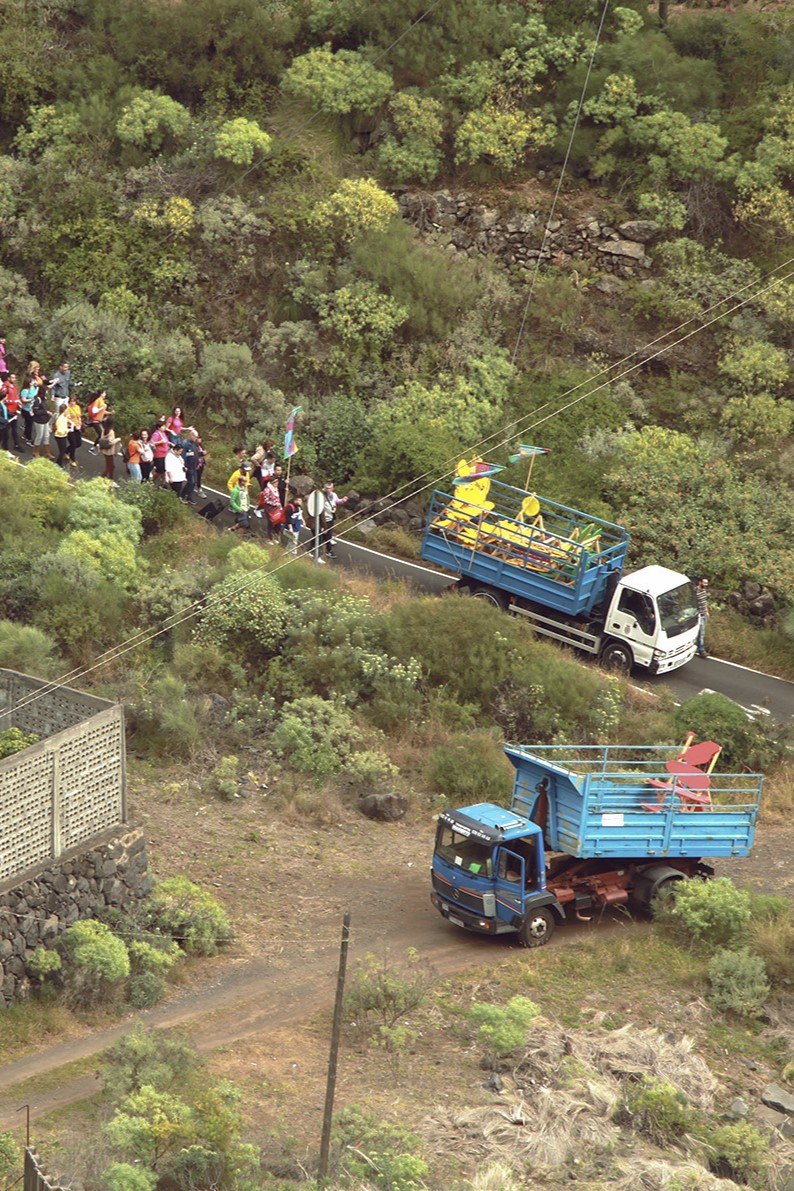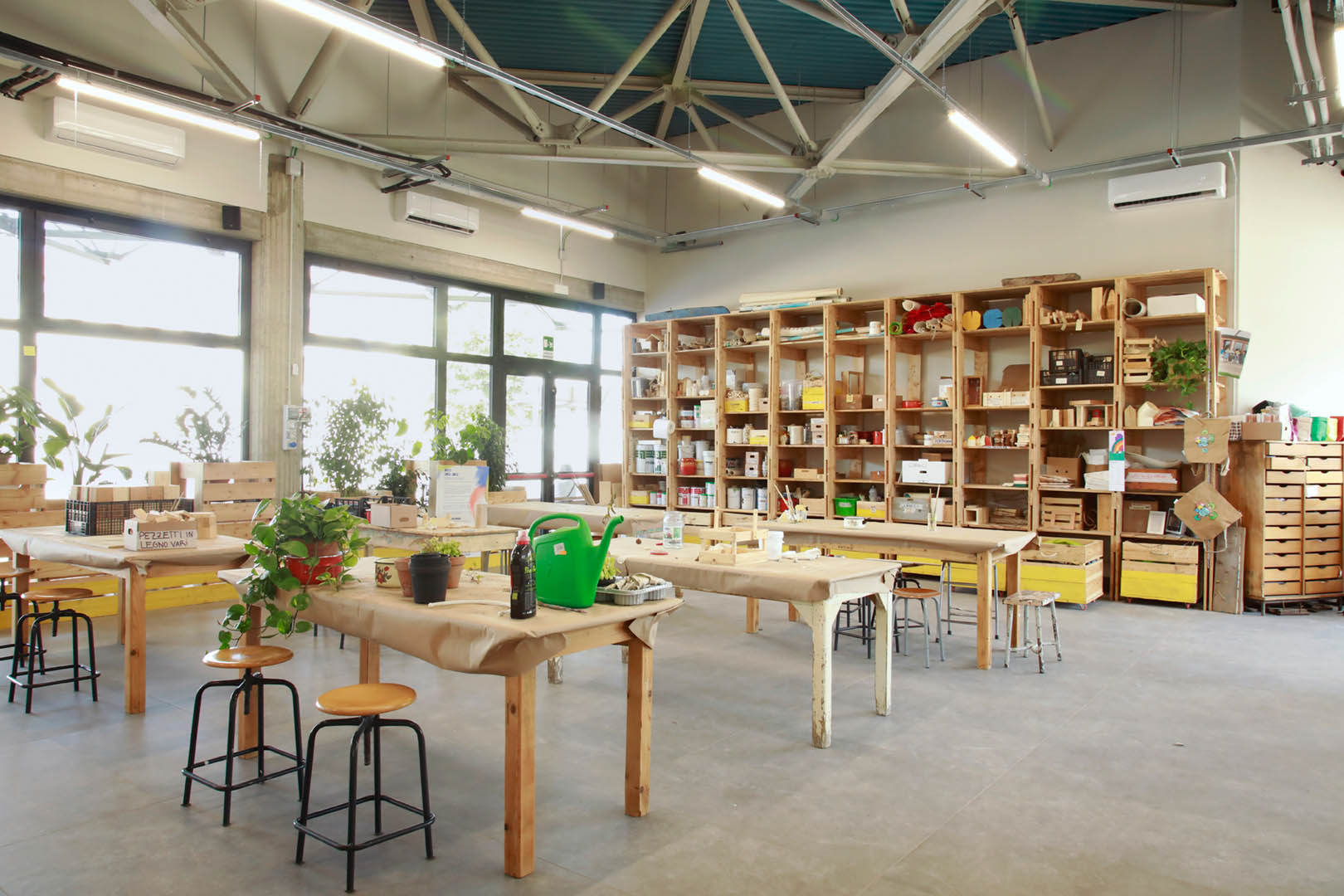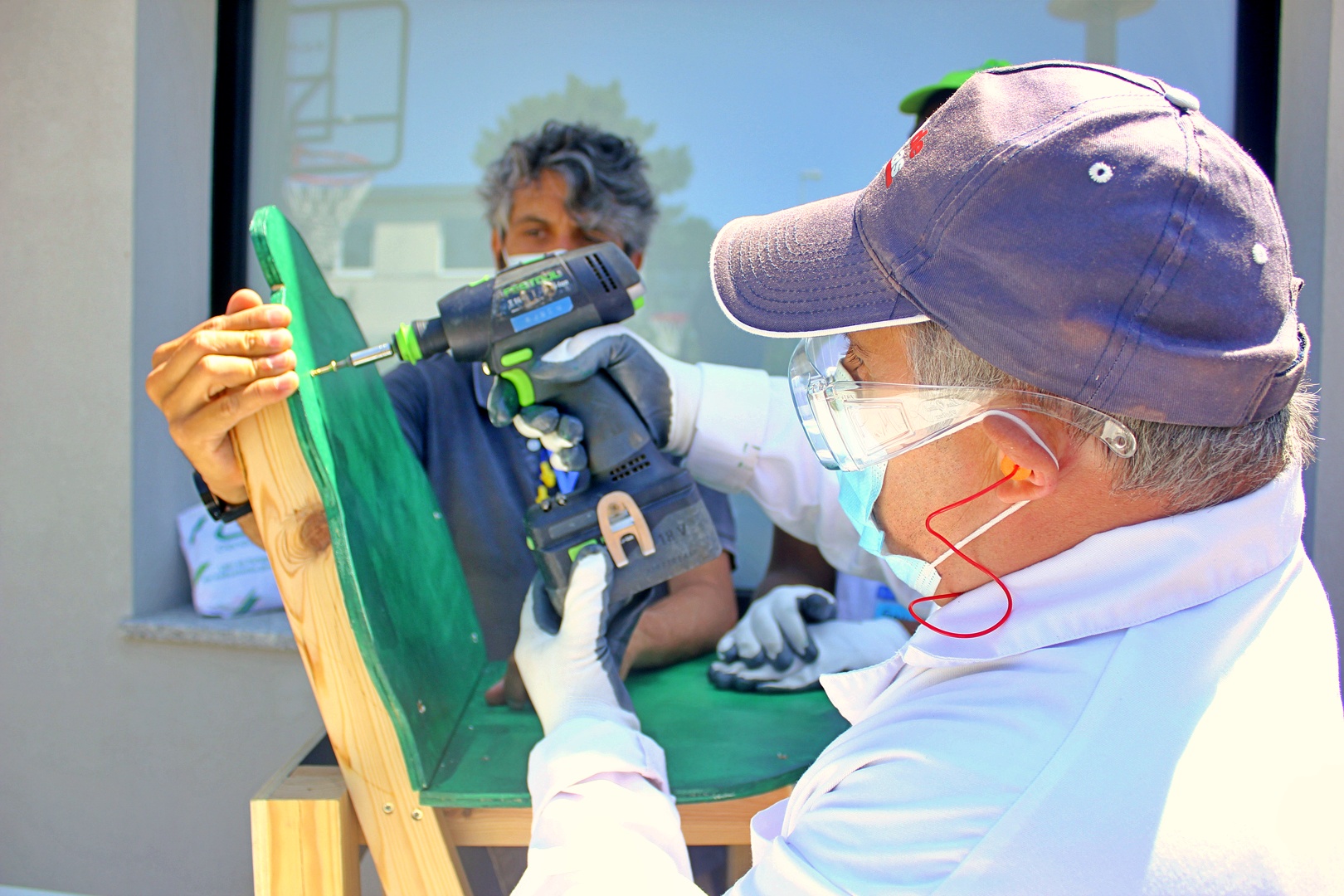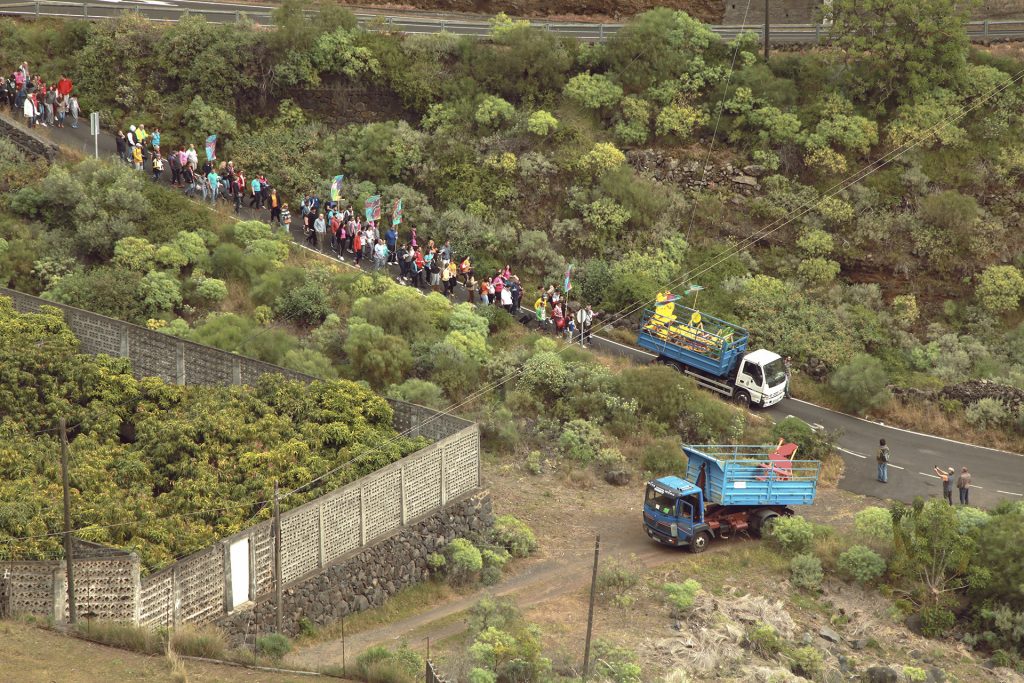
Autonomy and disability in rural areas through collaborative urbanism
Here Be Dragons (“Hic sunt dracones”) was a phrase used in the Middle Ages to describe the unknown territories beyond the explored world. On maps, these uncharted areas were often adorned with sea serpents and other mythical creatures.
Here Be Dragons is a project that works with people with disabilities to increase visibility, empowerment, and promote autonomy, abilities, and equality within this community. These individuals, particularly in rural and peripheral areas, are often less visible and less involved in communal life.
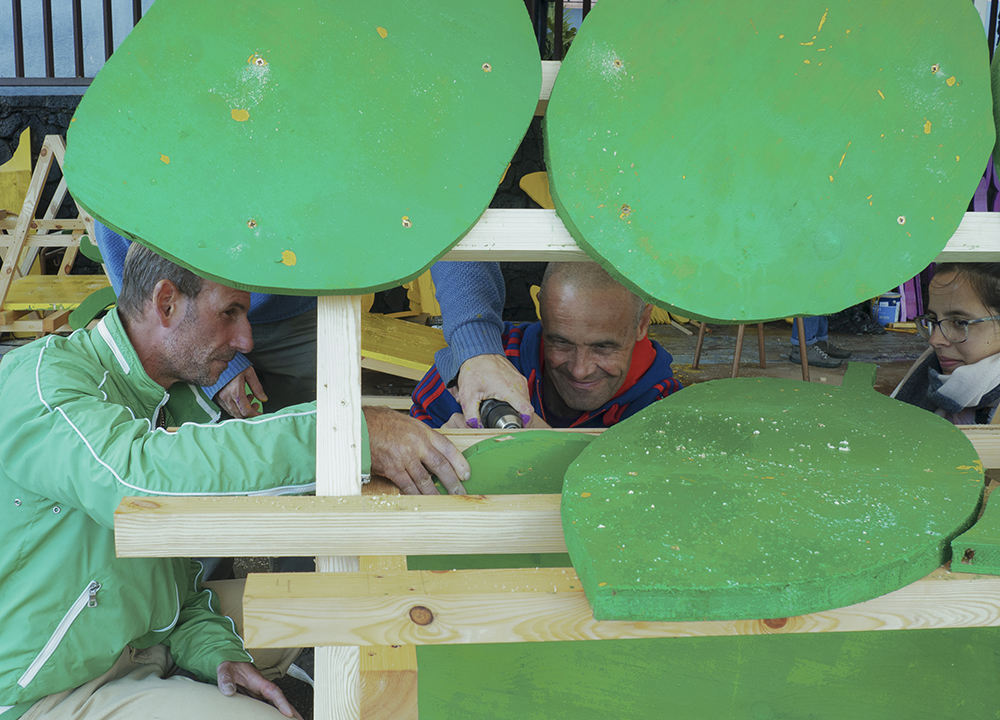
The project fosters a more inclusive urbanism through artistic and collaborative practices. These practices encourage the development of work habits, stimulate observational skills, and inspire transformative changes in participants, helping to build self-esteem.
The first edition takes place in the fall of 2019 in Santa Cruz de La Palma, specifically in the peripheral neighborhoods of La Dehesa, Las Nieves, and Velhoco.
Here Be Dragons builds connections between different groups to create a network that explores new ways of living and sharing public spaces. The project involves artists Clara Moreno and local artist Raisa Maudit, in collaboration with Plena Inclusión Canarias, various associations, and occupational centers whose members possess a deep knowledge of the local history and context. It also works with neighborhood associations, municipal workers, botanists, and even the parish priest of the Royal Sanctuary of Our Lady of Las Nieves.
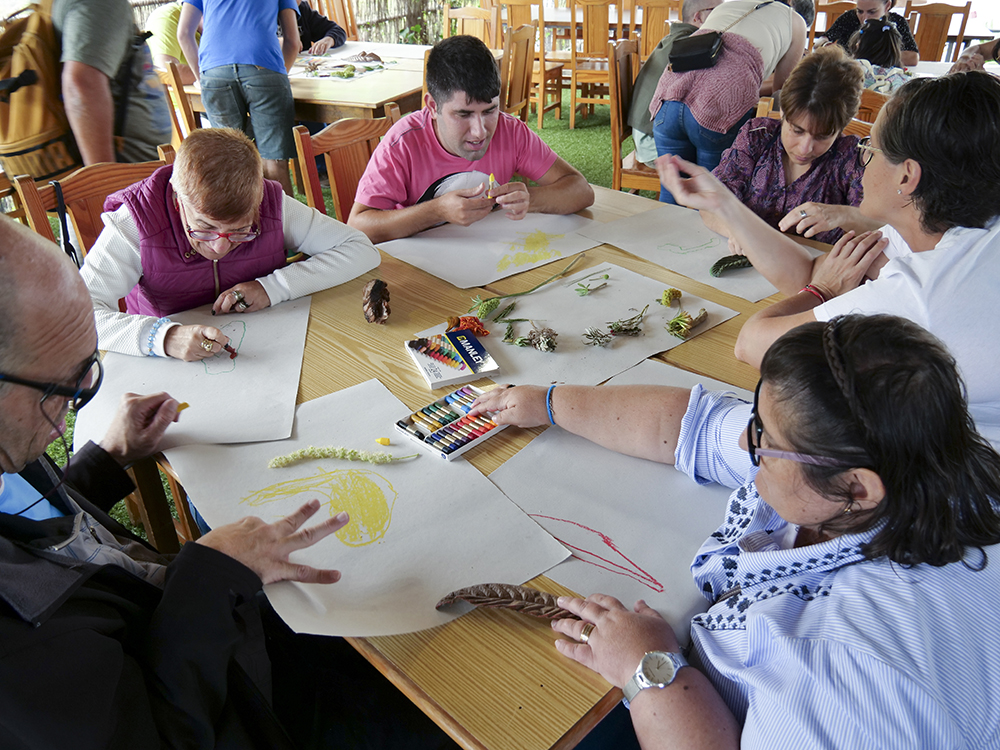
Through a variety of workshops, participants share experiences and learnings via walks, urbanism workshops, and design and construction sessions. These activities highlight the natural surroundings, flora, memory, and heritage of iconic places like the Royal Sanctuary of Las Nieves and the Barranco de Las Nieves.
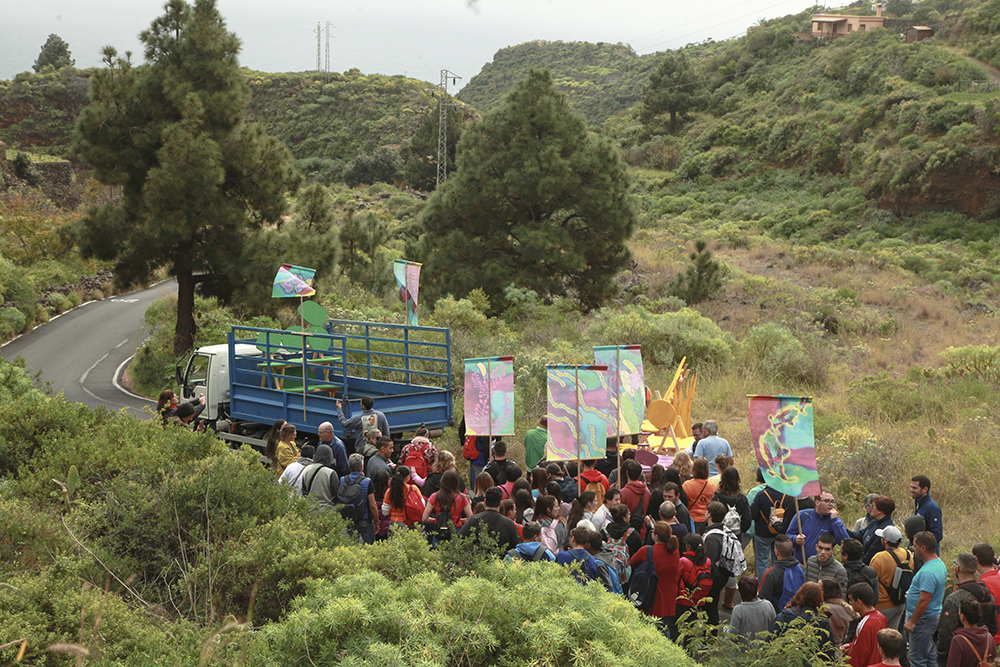
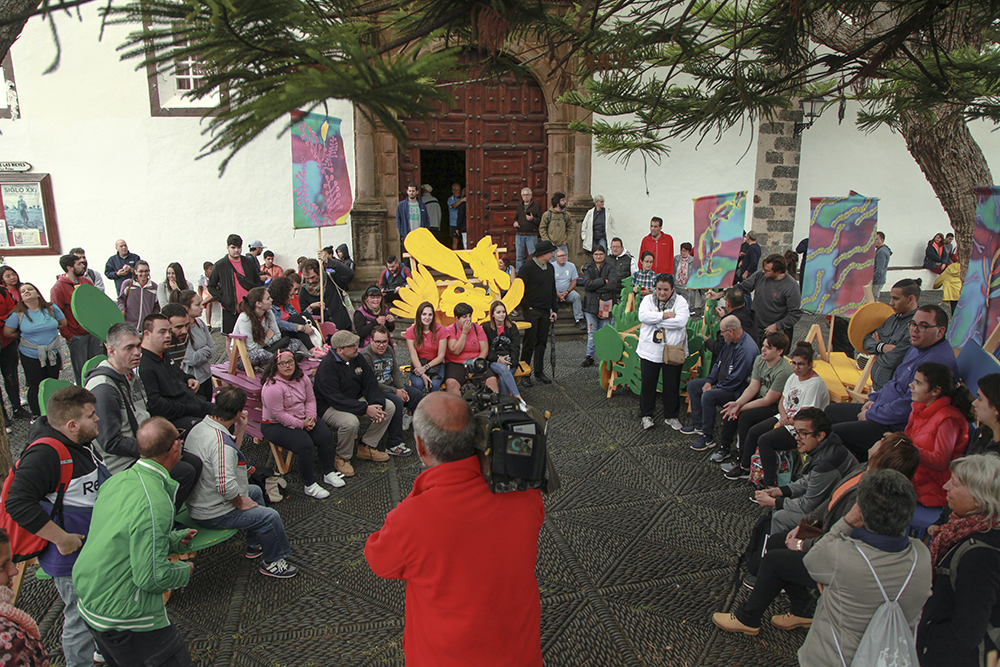
The project culminates in a “pilgrimage” through the ravine, activating various points along the path with furniture designed and built by participants, the artists, and Zuloark.
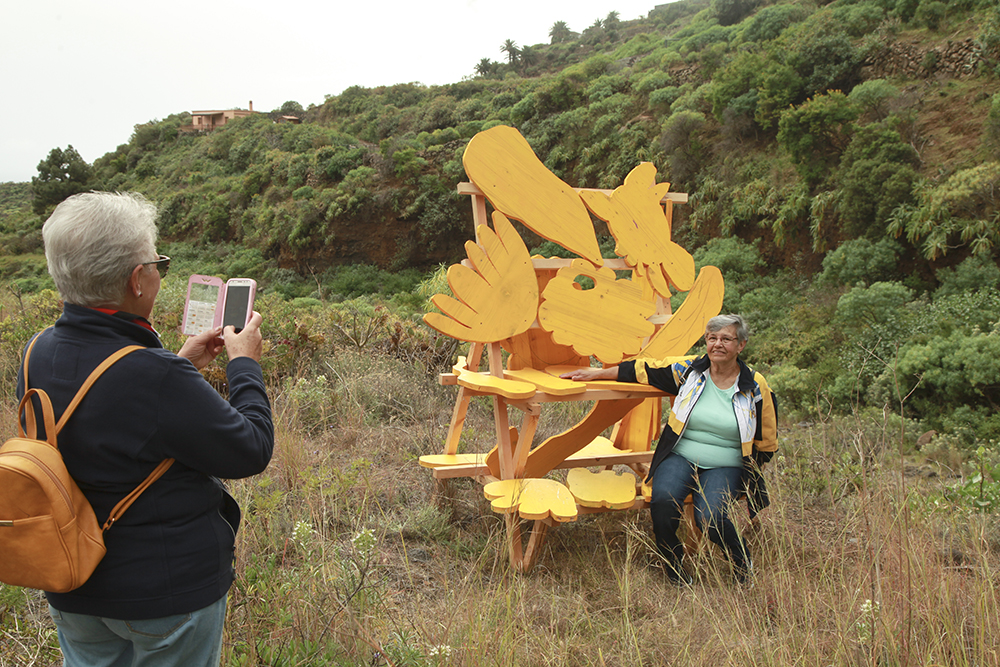
By installing this furniture and engaging in activities such as plant collection, drawing, storytelling, and gathering personal interests, memories, and music, the project fosters the reclamation and reinterpretation of public spaces. It emphasizes the value of the natural and cultural heritage of the area while enhancing the visibility and inclusion of people with intellectual or developmental disabilities through artistic practices in the rural context.

The “pilgrimage” invites families and the broader community to participate, encouraging collective reflection on how to improve our surroundings through learning, collaboration, and building inclusive and sustainable networks.

